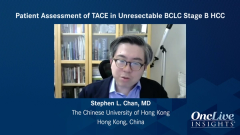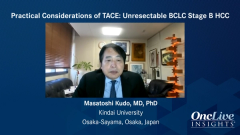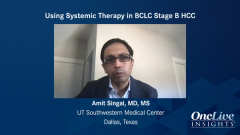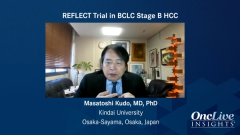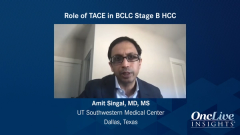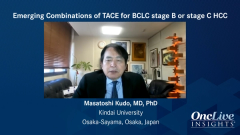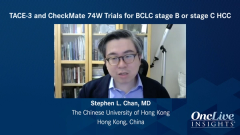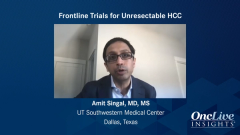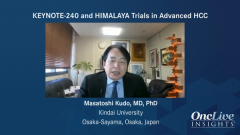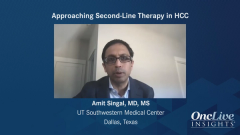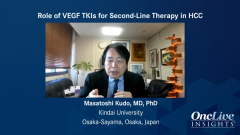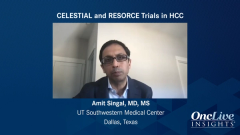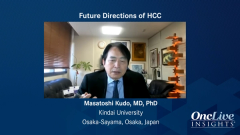
TACE-3 and CheckMate 74W Trials for BCLC stage B or stage C HCC
Stephen L. Chan, MD, reviews data from key trials of emerging combinations of TACE (transarterial chemoembolization), plus systemic therapies for BCLC (Barcelona Clinic Liver Cancer) stage B or C hepatocellular carcinoma.
Episodes in this series

Stephen L. Chan, MD: Regarding the TACE [transarterial chemoembolization] plus chemotherapy study, I would like to talk about the rationale of the study and highlight 2 randomized phase 3 studies—something on this aspect. Regarding the rationale, it’s evident that the TACE could modulate the immuno-environment in the liver. For example, it’s been shown that it can enhance the activity of the cytotoxic T cells, and it has also been shown that the TACE itself could downregulate the immunosuppressive cells within the tumor environment. Therefore, it makes sense for the TACE to act as a booster to the immunotherapy, and it makes sense to combine the TACE and the immunotherapy.
To study these combinations, there are a number of the phase 3 clinical trials. One is TACE-3, which is a phase 3 study. It’s sponsored by the NHS [National Health Service] in the United Kingdom and mainly conducted in the United Kingdom. There will be 2 arms in the study. One is the TACE or TAE [transarterial embolization] as the control arm, and the other arm is the TACE or TAE plus the nivolumab treatment. The sample size of this study is around 522 patients and will be looking at whether this study could improve the progression-free survival of the populations.
Another study is the CheckMate 74W. This study is also looking at the TACE in combination with the checkpoint inhibitors. In this study there will be 3 arms. The first arm is the TACE plus 2 placebos acting as the control arm. Another is the experimental arm, which is the TACE plus nivolumab plus the ipilimumab—the placebo; this group will be receiving only TACE plus nivolumab. The third arm will be the TACE plus nivolumab and ipilimumab.
It will be a 3-arm comparison with a sample size of around 765 patients. This study will be looking at the primary end point of the progression-free survival. Both studies will be important to answer a question: When we add the immunotherapy, either 1 or 2 drugs, the CTLA4 plus the PD-1, where will it improve the outcome of the patient by delaying the progression plus or minus improving the overall survival? Both studies are still ongoing, and hopefully it will be completed in the next 1 or 2 years of time, and we will have the answer then.
Transcript Edited for Clarity



